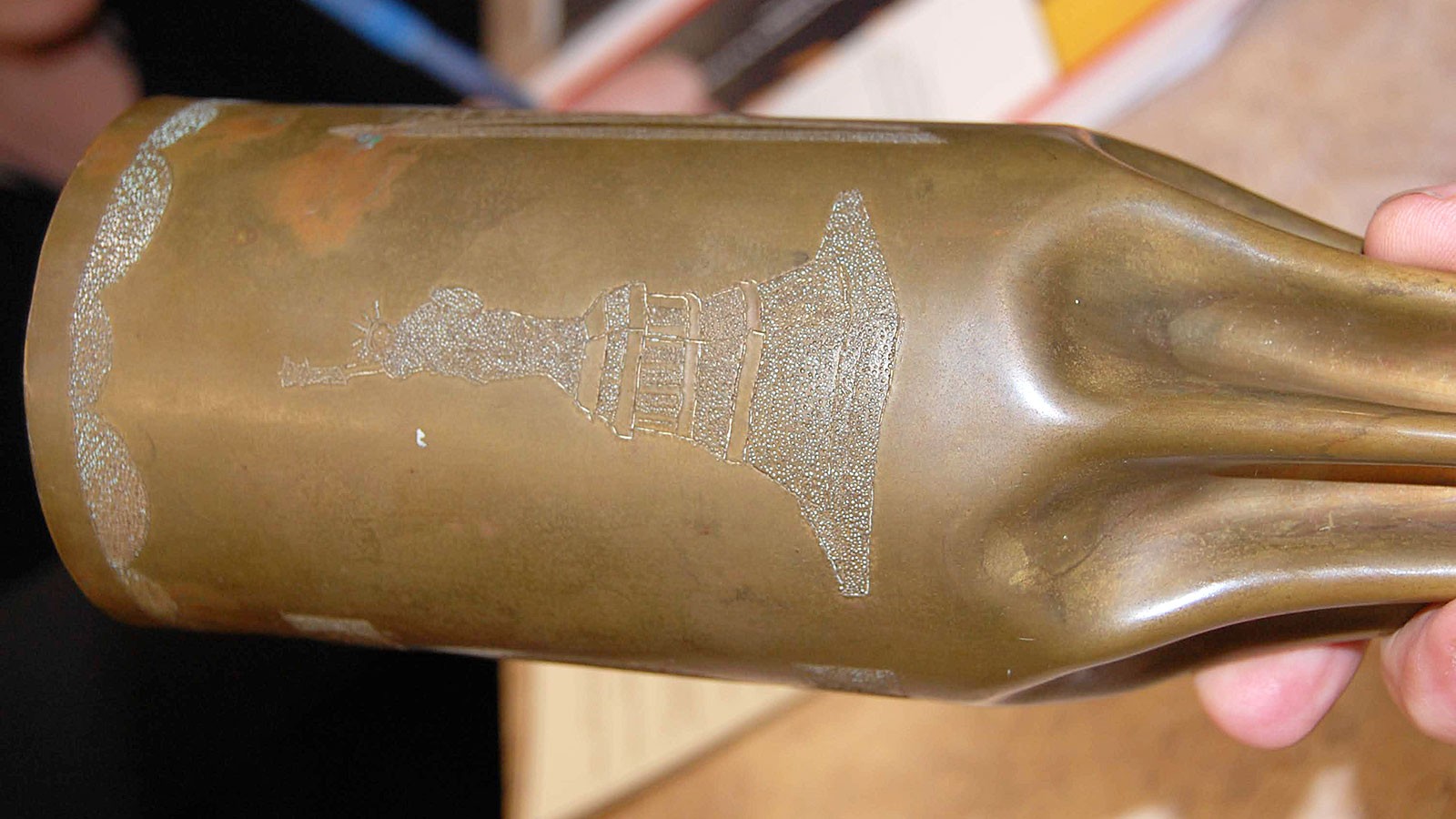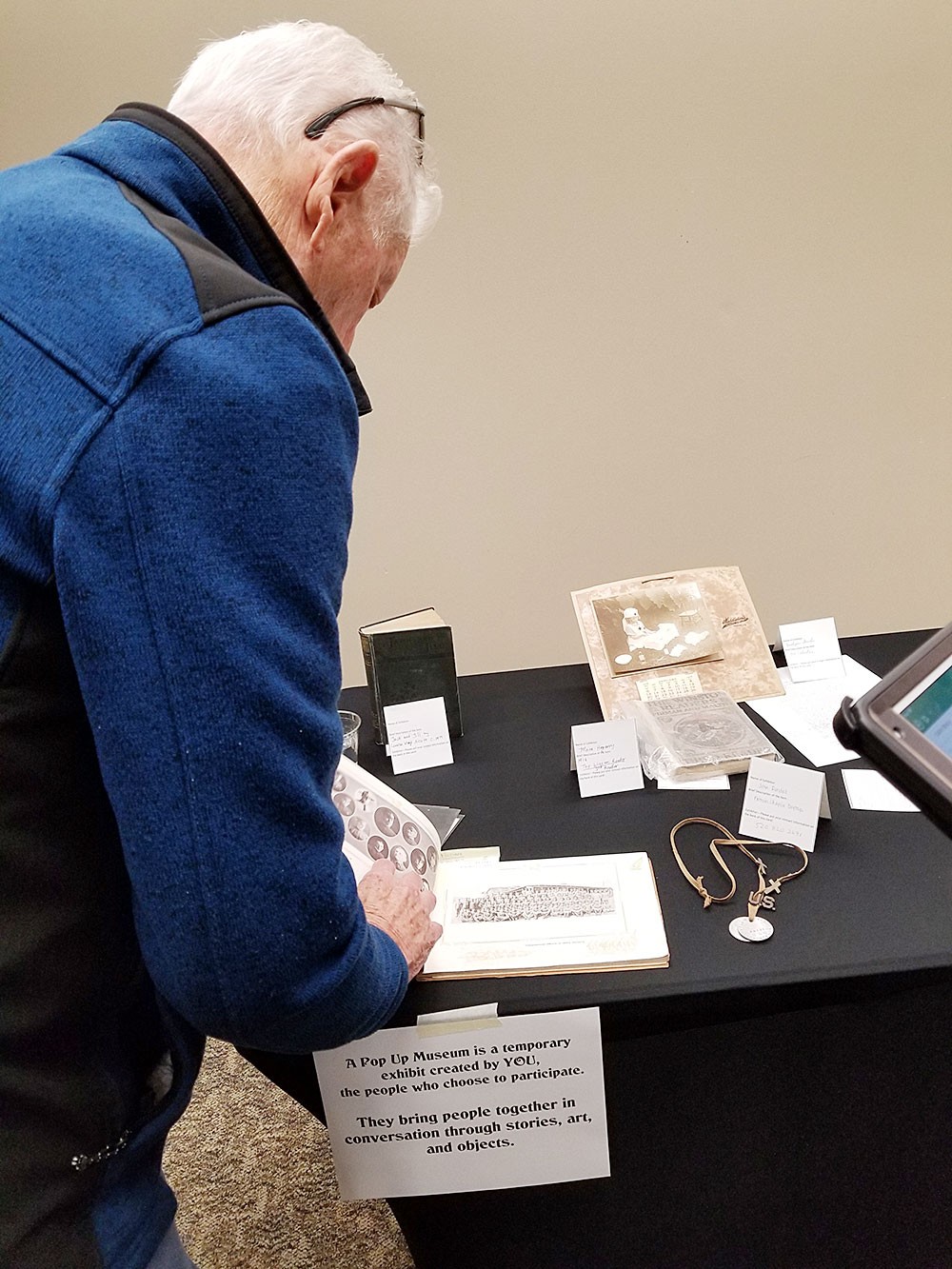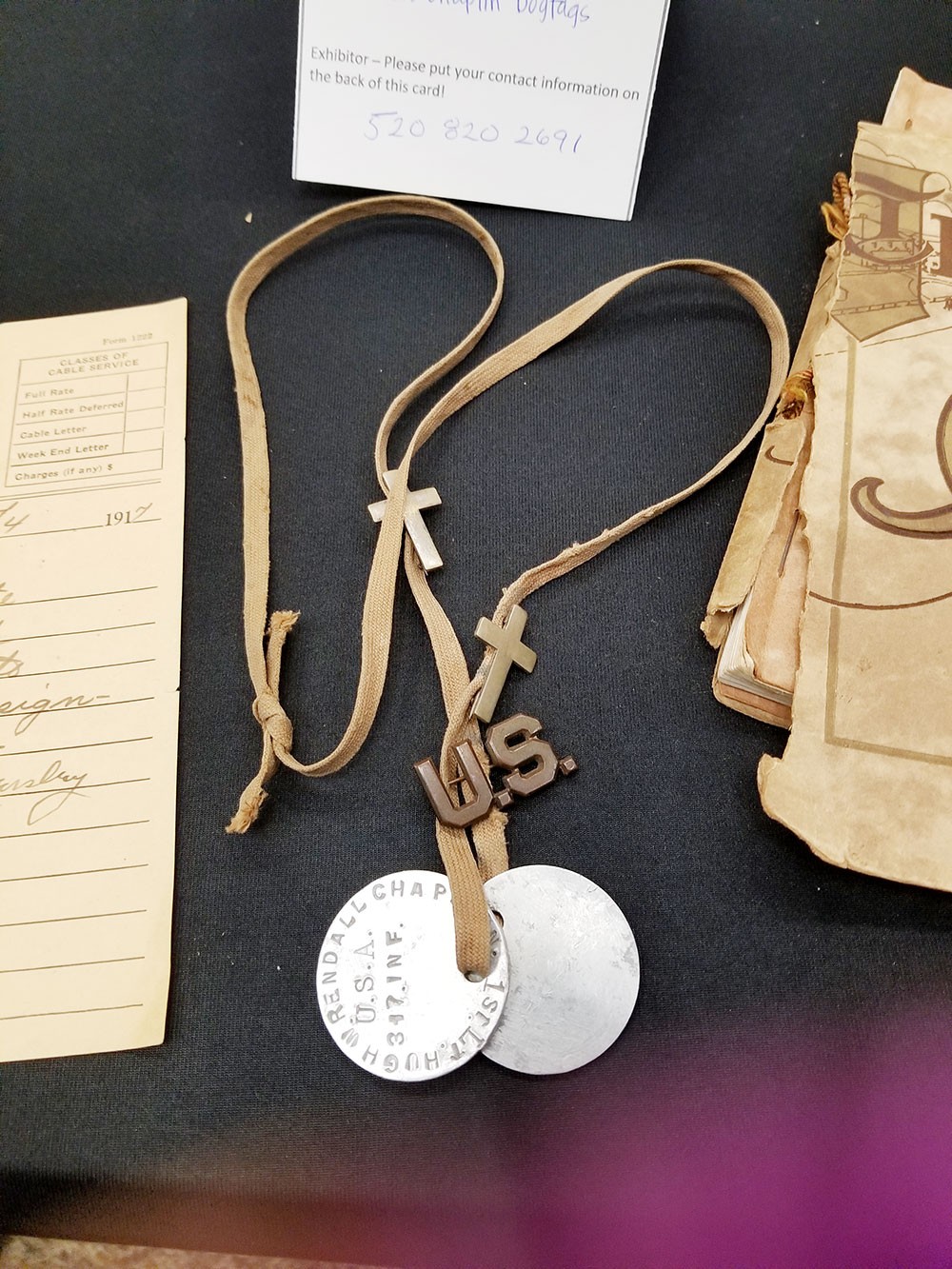Bringing War Home Project Hits the Road
By Kristen Munson |
The Statue of Liberty is etched into an artillery shell casing in this example of "trench art," objects created by soldiers as mementos of war. The piece was part of a "We Will Remember Them" WWI roadshow at USU in 2018.
It seems like every family has that box in the basement. The one with relics from a time and place we can’t quite imagine and collected from loved ones often no longer here. Utah State University’s Bringing War Home: Object Stories, Memory and Modern War project, a two-year community-facing endeavor, welcomes veterans, military families and other civilians to share the stories behind the artifacts of war at several upcoming roadshows in March and April.
“The whole purpose of the project is to really think about how material culture — objects or things — are a way to understand the history of war,” explains Susan Grayzel, a professor of history and scholar of the First World War. “People go off to war with photographs, with family heirlooms, with good luck charms. And then they pick things up when they do service overseas and bring those back, and sometimes they are all that remains, literally, of that experience. What our project is trying to do is capture the personal history as well — digitally record the object — to learn why that object matters.”
While the primary focus of the project is on World War I and the Vietnam War, the project aims to include stories and objects from the wars of the 20th and 21st centuries. One pressing reason for centering the Vietnam War is because that generation is aging and we have an urgent need to learn those stories before they are lost, Grayzel explains.
“Part of me wishes that someone 50 years ago had been around asking these questions of the World War I generation, so I’m grateful to be part of the process of preserving this history now,” she said.
Bringing War Home is funded through the National Endowment for the Humanities’ Dialogues on Experiences from the War grant program. The project includes a class co-taught by Grayzel and Molly Boeka Cannon, professional practice assistant professor of anthropology who teaches students to collect and document material culture narratives of war. The heart of the effort, however, involves holding public workshops. There people can share the stories of the artifacts of war and have them photographed. The stories and photos will be included in a digital archive housed at the USU libraries that will benefit future generations.
“Another goal of the roadshows is to offer some resources and workshops for people to collect their own family histories and do some of the documenting at home,” says Boeka Cannon. “That is really the whole point of this project. It is less about us and more about offering this space to let everyone’s history come together.”
Upcoming roadshows include:
April 9 on the USU Logan Campus, Eccles Conference Center from 10 a.m. to noon.
April 9 at Hyrum City Museum from 2 p.m. to 4 p.m.
April 23 at Hill Aerospace Museum 10 a.m. to 3:30 p.m.
May 14 at Fort Douglas Military Museum 10 a.m. to 2 p.m.
For more information about Bringing War Home, visit https://www.usu.edu/mountainwest/bringing-war-home. Follow the project on Instagram at https://www.instagram.com/bringingwarhome/
An attendee examines objects at a "We Will Remember Them" WWI roadshow at USU in 2018.
Dog tags are displayed in a "We Will Remember Them" WWI roadshow at USU in 2018.
WRITER
Kristen Munson
Managing Editor
Utah State Magazine
kristen.munson@usu.edu
CONTACT
Susan Grayzel
Professor
Department of History
s.grayzel@usu.edu
Molly Boeka Cannon
Director
Mountain West Center for Regional Studies
435-797-7545
molly.cannon@usu.edu
TOPICS
History 138stories Exhibitions 127stories Humanities 117storiesComments and questions regarding this article may be directed to the contact person listed on this page.











